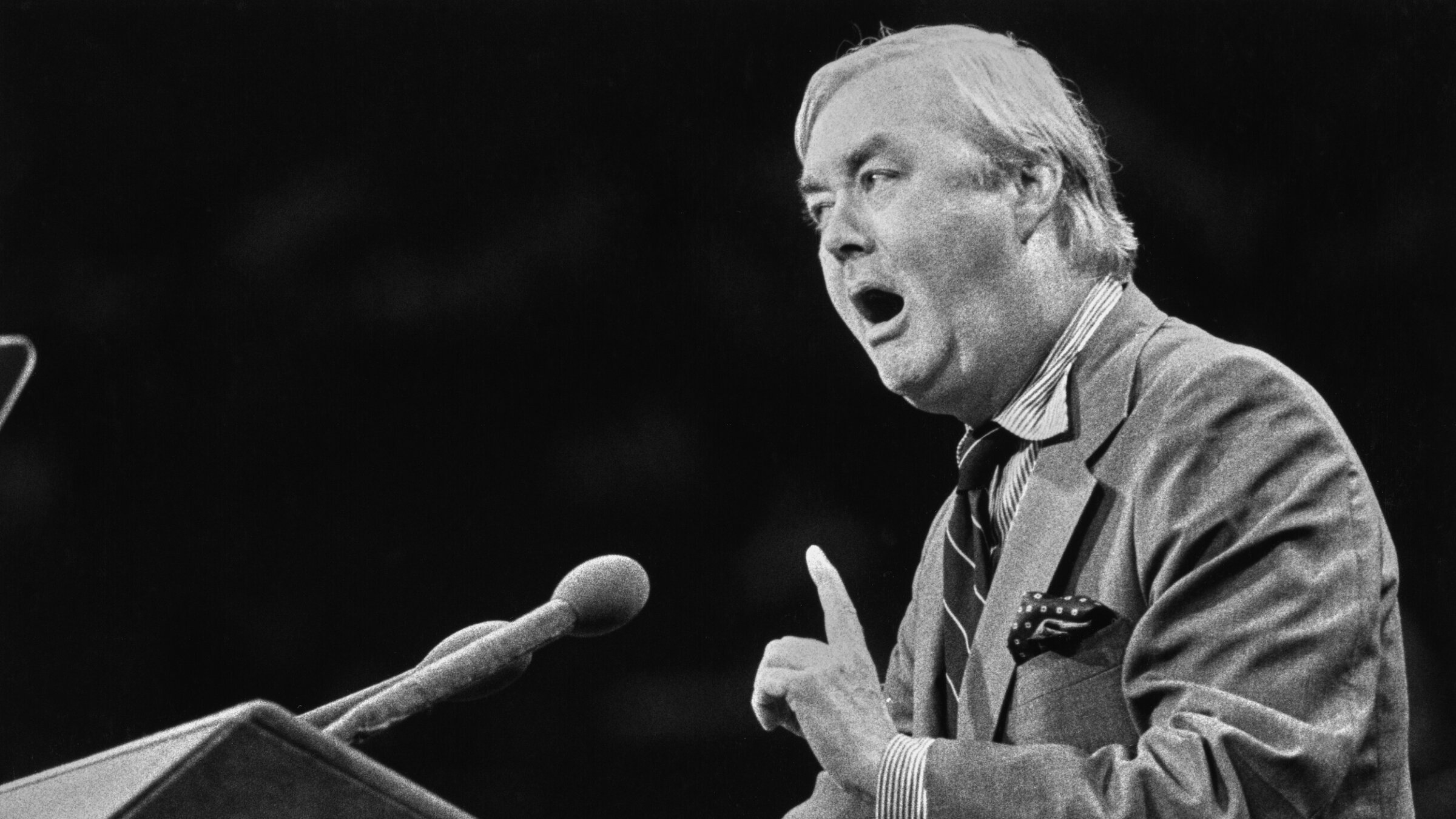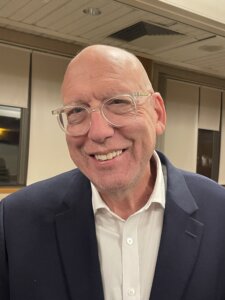When Zionism was maligned at the UN, he fought for truth — what would he say today?
Fifty years ago, one speech countered the onset of pernicious lies about Israel

American politician and diplomat Daniel Patrick Moynihan, circa 1980. Photo by The News World/FPG/Archive Photos/Getty Images
Ask most New Yorkers today, and they will tell you that “Moynihan” is the name of a grand, elegant train hall on the West Side.
But the real Daniel Patrick Moynihan made his greatest mark across town, on the East Side, at the United Nations headquarters.
There, 50 years ago this week, the United Nations General Assembly passed Resolution 3379, which declared that “Zionism is a form of racism and racial discrimination.” It was a Soviet- and Arab-backed effort, cloaked in the language of human rights, designed to delegitimize the Jewish state.
And Moynihan, then the United States ambassador to the U.N., rose before the General Assembly and thundered:
“The United States rises to declare before the General Assembly of the United Nations, and before the world, that it does not acknowledge, it will not abide by, it will never acquiesce in this infamous act.”
The resolution, he added, “reeked of the totalitarian mind, stank of the totalitarian state.”
With those words, Moynihan showed that friendship with the Jewish people need not be sentimental; indeed, his was not. That friendship must root itself in something far deeper than affection — in fealty to truth itself.
And the truth was simple: Zionism was, and is, not racism.
“There are black Jews, brown Jews, white Jews, Jews from the Orient and Jews from the West,” Moynihan said, correctly noting that Israel’s citizenry was among the most diverse in the world. And Zionism was not a form of hatred, he argued, but rather “part of the general upsurge of national consciousness and aspiration that overtook most peoples of Europe and in time spread to all of Africa and Asia.”
As Gil Troy shows in his biography Moynihan’s Moment, Pat Moynihan was an unlikely champion of Israel. “Israel was not my religion. I had never even been there,” he admitted. Born in Hell’s Kitchen in 1927, Irish Catholic and rough-edged, he had no personal ties either to Zionism or to Jews.
But he understood that the vote on Resolution 3379 was a warning sign about the health of the U.N., and the noble principles it aimed to uphold. By enacting the resolution, he said, the institution risked becoming “a place where lies are told.” He cautioned that diluting the word “racism” to include Zionism would pollute the fight against racism itself. And he foresaw “ideological secondhand smoke” — falsehoods that linger long after their supposed repeal.
And as he predicted, years later, we still live with the fallout of Resolution 3379 — even though it was rescinded in 1991, thanks to American diplomacy under President George H.W. Bush.
Antisemitism is resurgent. Lies about Israel metastasize with every news cycle. The U.N.’s obsession with Israel continues, even as atrocities elsewhere draw barely a mention.
To remember Moynihan’s stand for truth is to remember that it did not, inevitably, need to end this way. In 1975, Moynihan — whose speech propelled him to a Senate seat, which he held for four terms — was not alone. Activists like the late Vernon Jordan, César Chávez, and Bayard Rustin opposed the “Zionism is racism” resolution. The Black militant Eldridge Cleaver, writing from prison, declared: “To condemn the Jewish survival doctrine of Zionism as racism is a travesty upon the truth … Of all people in the world, the Jews have not only suffered particularly from racist persecution, they have done more than any other people in history to expose and condemn racism.”
Moynihan’s brilliance was that he defended principles, not parties. He would have celebrated our current moment of tentative reconciliation, amid the ceasefire. And, with his trademark Irish bluntness, he would also have warned Israel’s leaders not to erase his moral victory with policies that cheapen Zionism’s meaning.
He would remind them that Zionism at its core is the Jewish people’s right to self-determination — a liberation movement, not a supremacist one.
Can we all, today, receive his message?
The peace now unfolding offers the world a test. The same institution that once branded Zionism racism now witnesses Jews and Palestinians daring to think about the possibility of building together. It must support them.
This anniversary should not pass quietly. It is a reminder that moral clarity is possible — and necessary. Moynihan stood up in 1975 not because it was popular, but because it was right. He refused to acquiesce in a lie.
That is what leadership looks like.














